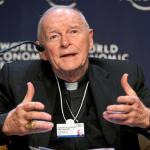Sherry Weddell posted this item on Facebook this morning, drawn from her reading of a biography of St. Vincent de Paul, “Vincent de Paul: The Lazarist MIssion and French Catholic Reform” by Alison Forrestal.
This strikes me as some savvy insight for a lot of us:
Early on, de Paul followed what was known as the “modern method” (dating back to the 12th century!). A decade later, he advocated the “little method” for simplicity in preaching. The Council of Trent recommended that clergy preach “in proportion to their own and their people’s mental capacity . . . and impressing upon them with briefness and plainness of speech the vices that they must avoid and the virtues that they must cultivate.”
Charles Borremeo of Milan published a guide to preaching in which he recommended a simple style of preaching designed to instruct and move listeners to conversion.
Frances de Sales was a renowned preacher who rejected what he called “pompous rhetoric”. De Sales wished that his words would come from his heart, so that he could speak “affectionately, devoutly, simply, candidly, and with confidence” to the hearts of his listeners. The chief function of a sermon was to teach, move, and “encourage the listeners along the path of Heaven.”
Vincent de Paul had cut his preaching teeth among rural peasants and believed that the level of the sermon needed to be determined by the education and ability of those who should hear it. He encouraged his missionary priests to tell stories that inspired people, applied abstract concepts to realistic situations and to people to whom they could relate.
He rejected controversy as a means of evangelization and conversion. He said “People will never believe in us if we do not show love and compassion to those whom we wish to believe in us.”
In a moment of crisis, with millions leaving the Catholic Church all over Europe, the Church and its foremost reformers/missionaries deliberately changed their style of preaching to make it accessible and compelling to a wide range of ordinary people.
Great stuff.













